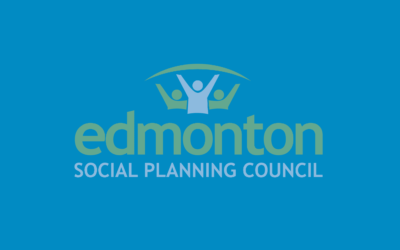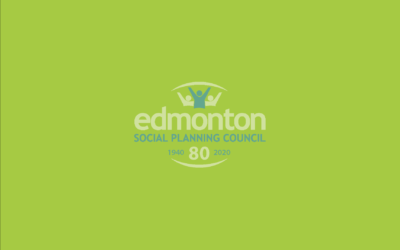CM: Bissell Centre: Housing is a Right and a Collective Responsibility

By Amanda Labonte
In order to put an end to homelessness, those who are unhoused need the necessary support to transition away from being unsheltered to finding a safe and stable place to call home. The Bissell Centre has a spectrum of services that aim to provide housing and the necessary wraparound support to those who are in need. The Housing Outreach Team at Bissell Centre is one form of housing support offered by Bissell Centre. Other housing programs offered include Homeless to Homes and Community Bridge. Candace Noble, Director of Housing and Outreach with Bissell Centre, shared more about the work being done.
How does your organization as well as the people you serve define homelessness or houselessness?
In terms of the definition of houselessness, it can vary by program but because we’re deeply rooted in the Housing First Program, we have started using the word houseless, so that’s the preferred term at Bissell Centre right now. It’s probably most widely accepted at Bissell Centre that a person that’s houseless would not have their name on a legal document entitling them to a place, such as not having their name on a lease agreement.
I think it’s really individualized in terms of how people see their situations so I think we would categorize somebody that’s couch surfing as being houseless, but they might not in their specific circumstance. It’s very individualized how folks would define their own situation.
Could you give a brief overview of what the Housing Outreach Team does?
Our Outreach Housing Team in its current form has six housing outreach workers. The outreach workers provide housing first services so they’re interacting with community members that have been chronically or episodically experiencing homelessness.
They are housing folks that often have co-morbidities, in the form of untreated mental health diagnoses or substance use disorder. They would help them find independent market housing and set them up with furniture and utilities. The team helps with startup groceries [ie: pantry staples and first month’s groceries] and then they refer folks out to a housing first case management team that would provide them with wraparound support for a year at least.
There is an addition to the Outreach Housing Team called Diversion. At Bissell Centre, we refer to that as a diversion from chronic homelessness. It means diverting folks from requiring that intensive support of the housing first program.
Their goal is to meet anyone in the community that has a housing need and support them with whatever that need is. It’s a really individualized program and started initially filling gaps in the community as it existed in terms of housing services. We continue to do housing workshops, our staff will go to places like WIN House and provide housing services to individuals staying there, helping them to move out. Edmonton Public Library is a big partner for us in terms of providing our diversion services. There’s lots of diversity in the need that comes to those workshops, for example, we’ll get folks that are coming with landlord issues for mediation or conflict resolution, or we’ll get people that are facing eviction due to arrears or utility debt.
What are some barriers people experience when they’re trying to obtain housing?
Because we work with folks across the entire spectrum of needing housing it’s varied. We’re working with folks that are sleeping outside and trying to move those folks inside to shelter or temporary housing and the reality of it is that our shelter system is not exhaustive. A barrier for folks sleeping outside is consistent contact and their daily fight for survival. Trying to maintain their lives, and their basic needs on a daily basis. It’s hard to think forward when you’re so caught up in having to survive that day.
Documentation is a huge piece. Barriers to identification, landlord references, income, those things are huge. Our team tries to help with all of those things. For example, in order to get Alberta Supports right now, you really need to have a phone in order to have an application be approved.
Our community has really struggled to implement enough permanent supportive housing. We’ve committed to obtaining a certain number of 500 units I believe, but we’ve encountered lots of barriers whether that’s funding from different levels of government or land use. There’s a large portion of people in our community that are needing permanent support and we don’t have the facilities right now to be able to provide them with that level of care.
How might having an untreated mental health diagnosis or substance use disorder become a barrier to accessing housing?
There’s a lot of intersectionality between mental health and substance use and I don’t think that there’s a lot of resources available in our community to serve where those overlap. So, I don’t think it’s as huge a barrier in terms of programs getting folks into housing, but it makes housing retention a challenge. There are really big challenges in terms of finding appropriate services and levels of care for people. As there is with any social issue. It’s hard determining whose responsibility it is. Is this a healthcare, social disorder, or community agency issue? Whose responsibility is it to serve this demographic and what resources do you have to make it happen? We really struggle with that in terms of housing retention.
Housing First is an incredible program and it has the ability to meet people where they’re at and move them into housing without requiring any levels of compliance, really having a person-centered delivery model. But that person still has to exist in a community and has to live in a market housing setting. Often, we don’t have the resources to provide them with the support they need for that to go well.
How can we shift the conversation to create more inclusive spaces both for folks who are moved into housing but also for those that are still experiencing being unhoused?
Part of the stigma comes from concentration. If you have 100 people that are experiencing the same barriers and you put them all into a small area together that is going to exacerbate issues. The affordable apartments and the services are downtown, so we concentrate folks downtown. The big thing that we need to do to create inclusion in our broader communities is just to let people know that folks experiencing challenges are already existing in their community. The reason that you don’t see them is because they’re not hanging out together.
We [society] don’t create a lot of relationships. I think the biggest piece to inclusion is looking at ways that folks that are integrating into communities can experience reciprocity. I don’t think belonging really happens until you feel like you’ve had the chance to contribute something or feel needed in some way in that relationship.
Are there things that the broader community can do to help support folks that are either experiencing homelessness or that are recently housed?
There’s lots that every individual can do in their everyday life towards reconciliation. That’s a huge part of this work, specifically given the disproportionate number of folks that are Indigenous and experience issues related to poverty and homelessness. My biggest recommendation to anybody: be a better neighbour or a better community member in general. Know that history, read those recommendations, and figure out how you can implement even one of them in your daily life, your daily interactions.
Everybody actually does have something to offer. It doesn’t have to be monetary or anything that seems outrageous, but if you’re open to it everybody does have something to offer in terms of reciprocity. Being open and recognizing the humanness of everybody is so important.
What is one thing you really want people to take away from the work that’s being done?
Housing is a right. Having a right doesn’t mean that everybody is given the same thing, equality is not equity, and some people need a little bit more resources and support to get to the same place as somebody else.
Folks can’t begin to be on a journey toward self-actualization where they can reach their full potential and contribute their full selves to their family and their community without having their basic needs met. A living wage and a safe and adequate place to live for example. It’s pretty tragic that we still haven’t gotten there where we can provide that level of equity in our communities. We often look at people that ‘don’t have’ as being at fault for that in some way, but it’s a collective responsibility. We have a responsibility in order to provide those basic levels of care for folks.
If you would like to learn more about Bissell Centre check out their website. (bissellcentre.org)
Note: This is an excerpt from our September 2022 Community Matters, you can read the full publication here
Did You Enjoy this Article? Please provide feedback here
Amanda Labonte is a registered social worker and is Edmonton Social Planning Council’s Project Coordinator: Research Services and Capacity Building AND Volunteer Coordinator


